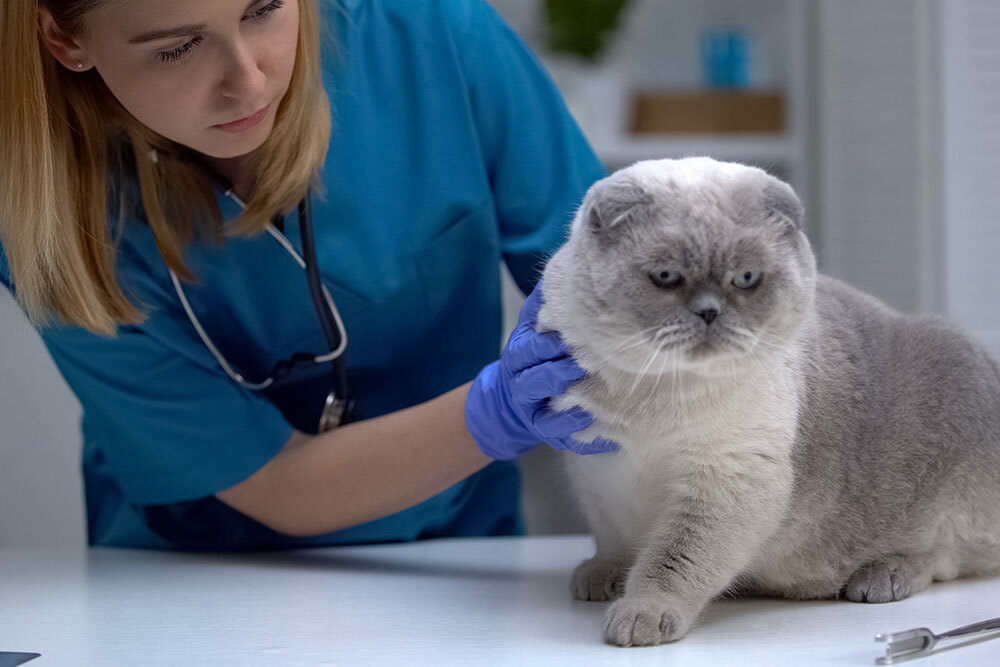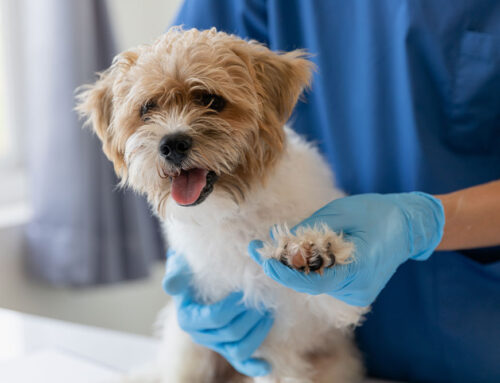Why Regular Wellness Exams Are Essential for Your Pet’s Long-Term Health
Regular wellness exams are a cornerstone of preventive pet care, essential for detecting health issues early and supporting your pet’s long, healthy, and active life. At Town & Country Animal Hospital, we believe that consistent checkups are key to protecting your pet’s well-being at every stage of life.
Discover what wellness exams entail and why they are crucial for keeping your pet happy and healthy.
Understanding Wellness Exams
What is a Wellness Exam?
A wellness exam is a comprehensive health evaluation designed to assess your pet’s overall condition. These exams aim to detect potential health issues early, ensure vaccinations are current, and support long-term health through personalized preventive care. Being proactive about your pet’s health today helps ensure a healthier tomorrow.
Why Wellness Exams Matter
- Early Detection: Catching health problems early allows for more effective, less invasive, and more affordable treatments.
- Preventive Care: Wellness exams focus not only on current health but also on preventing future problems through vaccines, parasite control, nutrition counseling, and lifestyle recommendations.
Learn more about the Importance of Wellness Exams
What to Expect During a Wellness Exam
Comprehensive Physical Examination
Your veterinarian will conduct a head-to-tail assessment, evaluating:
- Eyes, Ears, and Teeth: Screening for infections, dental disease, or early signs of chronic issues.
- Skin and Coat Health: Checking for parasites, allergies, dryness, or other skin conditions.
- Muscle Tone and Body Condition: Evaluating weight, muscle mass, and overall fitness to detect obesity or underlying illnesses.
- Vital Signs: Monitoring heart rate, respiratory rate, temperature, and other key indicators of health.
Vaccinations and Preventive Care
Vaccinations are critical for protecting your pet from dangerous diseases like rabies, distemper, and parvovirus. Wellness exams also ensure your pet receives appropriate parasite prevention for fleas, ticks, heartworms, and intestinal parasites.
Diagnostic Screening
Laboratory testing may include:
- Blood Work: Assessing organ function, detecting infections, anemia, diabetes, and more.
- Urinalysis and Fecal Exams: Screening for urinary infections, kidney issues, and intestinal parasites.
Diagnostic tests help identify conditions that may not yet show outward symptoms, enabling earlier intervention.
Discover the Importance of Blood Work for Your Dog
Weight and Nutrition Consultation
Your veterinarian will evaluate your pet’s diet, body condition, and feeding routine. Maintaining a healthy weight is one of the most effective ways to extend your pet’s lifespan and quality of life.
Age-Specific Recommendations
Puppies and Kittens: Building a Foundation
Frequent wellness visits during the first year help monitor growth, complete vaccination schedules, and prevent common juvenile health concerns. Early visits also promote healthy behavior and socialization.
Adult Pets: Maintaining Health
Annual checkups for adult pets focus on sustaining good health, detecting early changes, and reinforcing preventive measures like vaccines and parasite control.
Senior Pets: Special Considerations
For pets over seven years old, biannual exams are recommended. Older pets are more susceptible to arthritis, kidney disease, dental problems, and heart disease. Regular exams and additional diagnostic testing help manage age-related conditions early and effectively.
Read about Recognizing Senior Pet Health Problems
Why Wellness Exams Are Critical
Early Detection Leads to Better Outcomes
Identifying issues such as diabetes, heart disease, or cancer early increases the chances of successful management and treatment, minimizing discomfort and prolonging life.
Enhancing Lifespan and Quality of Life
Routine exams help catch minor problems before they become major ones, leading to a longer, healthier, and more comfortable life for your pet.
Saving on Future Veterinary Costs
Preventive care is an investment. Addressing small issues early often avoids costly emergency treatments and complex surgeries later.
Risks of Skipping Regular Exams
Missed Early Warning Signs
Many serious conditions, such as kidney disease or dental infections, can develop silently. By the time symptoms appear, treatment becomes more difficult and expensive.
Increased Health Risks and Expenses
Delaying routine exams can allow minor health issues to worsen, leading to more complicated, costly, and invasive interventions later.
How to Prepare for Your Pet’s Wellness Exam
Before the Appointment
- Track Changes: Document any behavior changes, appetite shifts, or physical symptoms.
- List Questions: Prepare any health, diet, or behavior questions for your veterinarian.
During the Appointment
Your veterinarian will perform a full examination, administer necessary vaccines, discuss preventive care, and recommend diagnostics as needed.
After the Appointment
If any health concerns are discovered, you will receive a detailed treatment plan. Follow-up exams, diagnostics, or lifestyle recommendations may be scheduled to support your pet’s ongoing care.
Schedule Your Pet’s Wellness Exam Today
Wellness exams are one of the most important gifts you can give your pet. They help you stay ahead of potential health problems, protect against preventable illnesses, and ensure your companion enjoys the best life possible.
Request an appointment when you’re ready to schedule your pet’s wellness exam







Leave A Comment